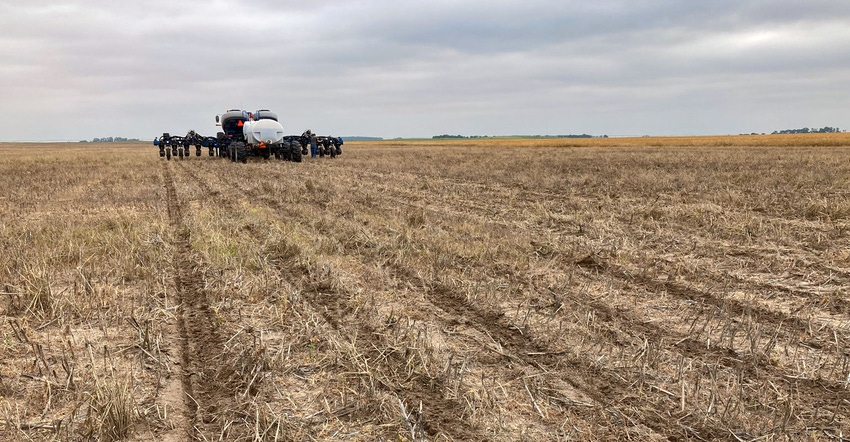
Sorghum farmers have long benefited from the environmental perks of growing the crop in drier regions. Now, a pilot project will help them reap the economic benefits as well.
The Ecosystem Services Market Consortium and the United Sorghum Checkoff Program have launched a pilot project in western Kansas for sorghum farmers to generate credits for capturing carbon, reducing greenhouse gases, and improving water quality and biodiversity. The project will test ESMC’s streamlined programming to create environmental credits from sorghum farmers’ fields.
The USCP has developed an official sustainability strategy, and part of that is identifying price discovery in new and emerging carbon markets and the ecosystem services market, says Adam York, Sorghum Checkoff sustainability director. This pilot project, which will focus primarily on sorghum acres in western Kansas, will also gather data to expand capacity and repeatability for sorghum growers throughout the Great Plains.
Valuable rotation
For decades, farmers have grown sorghum to protect their soils and conserve limited irrigation water. Many farmers throughout the Plains use sorghum in a rotation with wheat and sometimes corn. As a feed and food crop, it offers climate resiliency by adapting to heat and drought, as well as nutritional benefits for human and animal consumption.
According to ESMC, this pilot project will cover about 5,000 acres in western Kansas. Farmers who are interested in implementing conservation practices, such as nutrient management and edge-of-field practices, can earn credits. York says the one-year project will cover sorghum-based rotations for the 2023 crop year, with credits generated by 2024.
Credits can be earned for practices such as:
increased soil carbon
reduced or avoided greenhouse gases
improved water quality
preserved habitat to increase plant, bird and insect biodiversity and populations
York says flexibility was a key factor for the farmer-led USCP when it decided to partner on this pilot project. The longer these practices are continued, the greater the potential for environmental benefits — “but certainly in the High Plains region, which is sensitive and fragile, and frequently plans have to change. We want to make sure farmers do have the flexibility to only put these into practice in one year.”
The real value in signing up for this pilot project, which is free for sorghum farmers, is in the information-gathering that will be used to further develop this credit and payment system.
“We need to be at the forefront of this price discovery to help position farmers to take advantage of these opportunities with a growing ecosystem services market in the next two decades,” York says.
He says corporate buyers in food and beverages are in the market for these ecosystem credits, but they need them to be quantified and verified. That’s where ESMC comes to the table.
Background of ESMC
ESMC calls itself a nonprofit collective action program that is dedicated to scaling quantified and verified sustainable ecosystem services from agriculture. ESMC is a public private partnership of the agricultural supply chain and value chain, including agricultural producer groups and co-ops, corporate food and beverage companies, agribusiness, conservation and environmental nongovernmental organizations, ag tech companies, land-grant universities, and others.
ESMC is building its carbon market program through 2022, and targeting 500,000 acres with its market program launch.
“As we continue to build out market program scope and scale, we are a excited to bring on additional crops like sorghum,” says Debbie Reed, ESMC executive director. “Partners like the Sorghum Checkoff help us ensure this program works first and foremost for agricultural producers, so they are rewarded for the value and the outcomes of their work and the adoption of conservation practices. Our role is to document those improved outcomes in our science-based, standards-based market program and monetize the outcomes to benefit the growers.”
Project partners include ServiTech, which will provide soil sampling and lab analysis, and Pheasants Forever and Quail Forever, which will focus on the biodiversity components of the project.
Farmers interested in signing up for this pilot project in western Kansas should reach out to the USCP at sorghumcheckoff.com, or find more information at ecosystemservicesmarket.org.
ESMC and USCP contributed to this article.
About the Author(s)
You May Also Like






